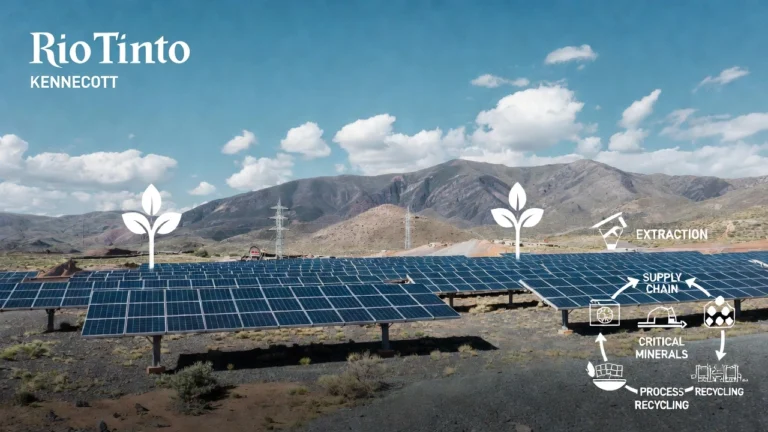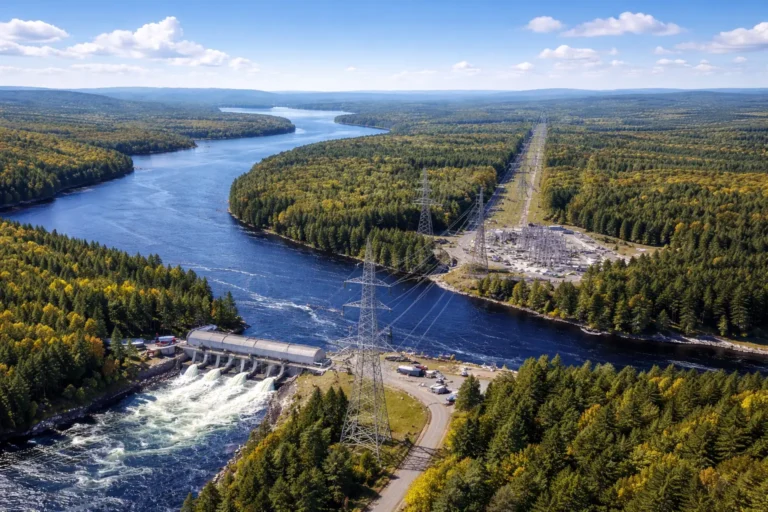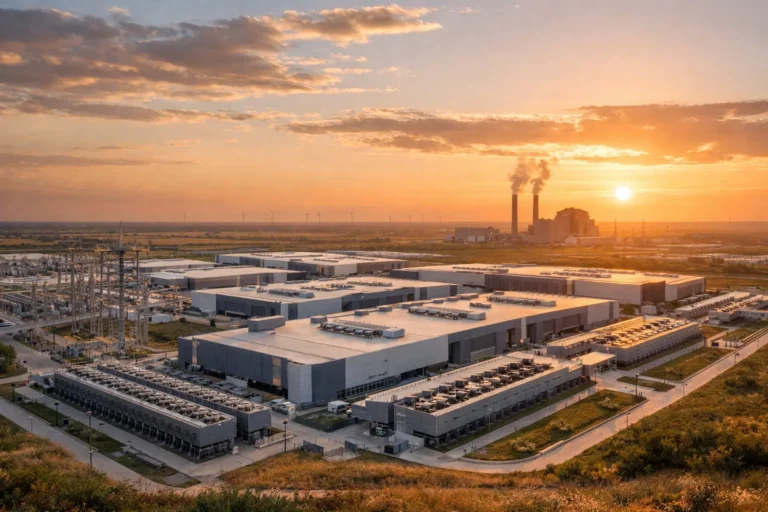
kWh Analytics Unveils First Resilient Power Report Showcasing Renewable Energy Successes Amid Extreme Weather
kWh Analytics, a leading name in Climate Insurance and risk management for renewable energy assets, has released its first-ever Resilient Power Report, a detailed compilation of case studies that demonstrate how renewable energy projects can endure and even thrive amid increasing climate volatility. The report serves as both a learning tool and a call to action for the renewable energy industry to adopt stronger, more forward-thinking resilience strategies.
The Resilient Power Report builds on the success of kWh Analytics’ long-running Solar Risk Assessment series, which has become an industry benchmark for understanding risk exposures in solar and battery energy storage system (BESS) assets. Now in its seventh year, the Solar Risk Assessment identifies and quantifies potential threats to renewable infrastructure. In contrast, the new Resilient Power Report shifts the focus from risks to results—spotlighting projects that have already faced severe weather challenges and proven their durability through intelligent engineering, proactive operational practices, and strong collaboration among developers, insurers, and technology providers.
Learning from Resilient Projects
“The assets we’re building today need to operate reliably for 30-plus years in a climate that’s becoming less predictable,” said Jason Kaminsky, CEO of kWh Analytics. “We can and should learn from the projects that are getting natural catastrophe resilience right and scale those solutions across the industry.”
This first edition of the Resilient Power Report features four in-depth case studies contributed by organizations across the renewable energy value chain. Each case study provides practical, evidence-based insights into how renewable energy infrastructure can withstand extreme weather events—from hailstorms and hurricanes to heatwaves and high winds.
1. When Insurance Drives Innovation: How Risk Assessment Transformed Municipal Solar Operations – kWh Analytics
This case study illustrates how insurance-led risk assessment has become a catalyst for innovation in municipal solar projects. By integrating insurance insights into project design and operations, municipalities were able to reinforce system components, enhance monitoring protocols, and ensure faster recovery following weather-related disruptions. The case highlights how data-driven insurance approaches can directly influence more resilient infrastructure outcomes.
2. Extreme Weather Resilience Lessons from Satellite Imagery – National Renewable Energy Laboratory (NREL)
The U.S. Department of Energy’s National Renewable Energy Laboratory contributed insights based on advanced satellite imagery analysis. NREL’s findings show how remote sensing data can be leveraged to assess site-level vulnerabilities, monitor storm impacts in real time, and guide recovery efforts. These technologies not only improve risk modeling but also help project operators refine siting and maintenance strategies for future deployments.
3. Tech Review of New Defensive Hail Stow System Confirms 100% Success Across Multi-Day Severe Convective Storm Outbreak in Arkansas – VDE Americas
This case highlights the success of a cutting-edge hail mitigation system developed and validated by VDE Americas. The defensive hail stow technology, designed to automatically position solar modules in protective configurations during hailstorms, proved its effectiveness in a real-world event that brought multiple days of severe convective storms to Arkansas. The system achieved a 100% success rate in preventing damage—demonstrating that preemptive engineering solutions can drastically reduce weather-related losses.
4. Building Wind Resiliency on the Frontlines: Lessons from Mayreau – Azimuth Advisory Services
Azimuth Advisory Services shared insights from renewable projects implemented on Mayreau, a small island in the Caribbean frequently exposed to tropical storms and hurricanes. The case study details how adaptive design, modular systems, and local capacity-building helped the island’s renewable infrastructure withstand high winds and resume power generation quickly after extreme weather events. This example underscores the importance of pairing technological resilience with community engagement and localized operational training.
A New Framework for Resilience
Beyond the specific projects, the Resilient Power Report underscores a broader shift in how the renewable energy industry approaches risk. Rather than treating resilience as an afterthought or a cost burden, forward-thinking developers and insurers are integrating it as a core value proposition. This mindset encourages preventive design, smart asset management, and stronger partnerships across the supply chain.
kWh Analytics, known for its Solar Revenue Put and other innovative insurance products, has long advocated for resilience-based underwriting—a system that rewards projects that invest in protective measures with better financial terms and greater insurability. The company’s approach demonstrates how insurance can serve not merely as a safety net but as a driver of innovation and reliability.
Building a Climate-Ready Energy Future
“Rising energy requirements and costs demand that the renewable energy industry succeed, and the case studies in this report prove we can,” Kaminsky emphasized. “By documenting and scaling what works, we can build renewables infrastructure that’s worthy of a long and sustainable energy future.”
The publication of the Resilient Power Report comes at a pivotal time for the renewable energy sector. As global investments in solar, wind, and storage technologies accelerate, so too does the exposure to natural hazards—ranging from intensified storms and flooding to extreme temperature shifts. The lessons in this report are intended to guide stakeholders—developers, financiers, insurers, and policymakers—in strengthening their risk management practices and prioritizing long-term operational reliability.
Collaboration as the Cornerstone
A recurring theme across all case studies is collaboration. Whether it’s a public utility partnering with insurers to refine operational strategies, or private technology firms working with research institutions to validate climate adaptation tools, the report highlights that resilience cannot be achieved in isolation. It requires data transparency, multidisciplinary engagement, and the willingness to rethink traditional project lifecycles.
Through this inaugural report, kWh Analytics aims to foster a more resilient renewable energy ecosystem—one where financial mechanisms, engineering innovation, and environmental responsibility work in unison. The Resilient Power Report not only celebrates what has already been achieved but also sets a benchmark for how the industry can continue to evolve amid growing climate uncertainties.
Source Link: https://www.businesswire.com/










